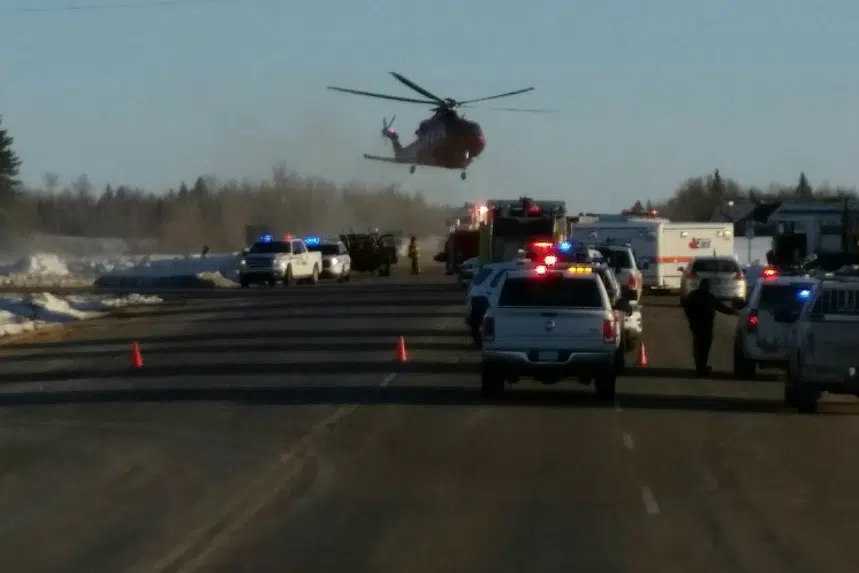Three weeks after first responders rushed to the scene of the deadly Humboldt Broncos bus crash, they are still being encouraged to get help dealing with what they saw and experienced.
Many of those who rushed to the scene to help were volunteer firefighters from the area of Tisdale and Nipawin.
Doug Lapchuck with the Saskatchewan Volunteer Firefighters Association (SVFA) said peer support counsellors were sent to the area in the immediate aftermath of the tragedy.
“We give (first responders) the tools and the guidance to help them find their way and decide whether or not they need more help, then we give them direction on how to get more help,” he told 980 CJME.
Lapchuck stressed the importance of people asking for help if they need it, because the main concern is for first responders to be able to go home to their families in the same condition they came into the job.
“To that end – by making it more acceptable to look for help and ask for help and remove the stigma that used to be attached to asking for mental health help – that’s going to go a long way to assist our firefighters to be healthy,” Lapchuck said.
He said attending funerals over the years for volunteer firefighters who took their own lives after witnessing difficult scenes has driven home the devastating consequences of leaving Post Traumatic Stress Disorder (PTSD) untreated.
While he said volunteer firefighters aren’t any more mentally vulnerable than any other first responder, Lapchuck said they are particularly at risk of getting called to an emergency where they know the people involved.
“A lot of the times we may be responding to a family friend or a family member or somebody we’ve known for years,” Lapchuck explained.
Up until a few years ago, he said no mental health supports were in place for volunteer firefighters at risk of PTSD.
Lapchuck said the SVFA developed the free peer counselling program to help respond to the need. He added there is a big benefit to having people connect with fellow firefighters to get help.







